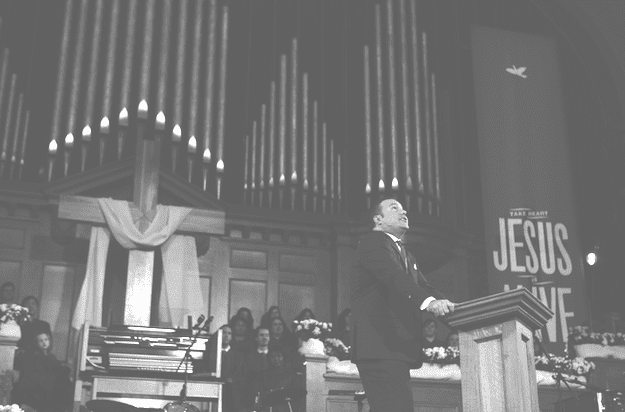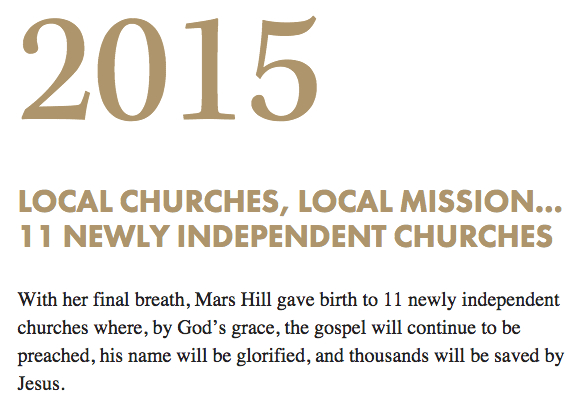Let’s be honest: blogging about hell just isn’t that hot anymore.
Love Wins is now well over two years old. The battle lines over North American (mainly, neo-reformed) evangelical orthodoxy have been drawn in bold print and ALL CAPS. Universalism, however “hopeful” it may be, has been roundly condemned, if not dismissed, as a heterodox innovation for wussy coward Christians who just don’t have the spine for preaching a Jesus who doubles as a concentration camp warden in the world to come.
But listen. I just watched Kevin Miller’s Hellbound? documentary, and all the fiery debate came rushing back to memory. Along with some fresh insight and inspiration regarding the goodness of God and the gospel.
So here’s another blog post about hell, even if it’s totally two thousand and late.
The insight and inspiration have to do with motivation. Because that’s the role that hell serves in our modern evangelical framework, right? Hell is the ultimate motivator – it (literally) lights a fire under our asses and gets us believing, obeying, serving, and tithing. My old Baptist pastor used to warn the congregation that the only real proof of salvation and election – and getting out of hell – was “love of the brethren,” serving and giving to the church. See, hell motivates.
And really, hell gets us salvation. Hell gets us heaven. We can’t even fathom the latter without the former, and the latter is defined almost entirely as the negation of the former. As one popular evangelical radio host said in the documentary, the whole panoply of scripture is pointing us to one thing: hell and the way of avoiding it.
So what would happen if we lost it?
What, then, would motivate us – why would we believe or obey or anything else?
And how on earth would we begin to understand salvation and heaven and gospel and all that stuff?
First off, it should immediately strike us as problematic that this one card brings the evangelical house down. But if that’s not enough, something else should trouble us: context. Specifically, the fact that not one famous conservative evangelical leader (like, say, Mark Driscoll) who promotes eternal conscious torment (ECT) can seem to respond to the strongest first-century contextual points made by the very best New Testament scholars, to the tune that the Gospels are primarily concerned with the judgment and destruction immediately approaching the Judean community in 70 A.D. Instead, they simply keep beating the same systematic drum: everyone who fails to come to faith in Christ is a sinner who will be tortured for all eternity in hell, and Jesus talked about it all the time. Full stop.
And the big motivator keeps firing away, and the institutions keep humming along, and the faithful remain obedient and committed.
But see, I think there’s a better motivator that will lead us to a better church.
And it requires that we lose hell, at least as we’ve known it. It requires that we rescue Jesus from the concentration camp gig that he never signed up for in the first place. It requires that we counter Dante and Augustine and Edwards with a truly human, world-and-life-affirming, divinely perfect justice – one that does not confuse the oppressed with the oppressors and does not sentence unbelieving Jewish Holocaust victims to a far worse and forever holocaust shortly after death in hell’s darkness and fire. One that doesn’t jump through ideological hoops and lean on intellectual formulae to justify inhumane injustice that contradicts even the most basic valuing of human life. This madness simply does not square with what we know of God through Jesus the Liberating King.
Because honestly, that hellish motivator often mechanizes a diabolical culture of abuse in the church as we know it. It elicits action from us by striking fear into us. It inaugurates leaders among us who hold the keys to our elect escape hatch and who may just see fit to bar the door in order to get the submission they want from us. (It at least gives them unthinkable power.) It creates a culture of us vs. them and in vs. out, and legitimates the demonizing of regular, beautiful people because of ideological differences. It paints a fundamentally angry God who only loves the lucky.
And it beats a false, guilty gratitude into us using the age-old hammer of shame.
Yes, we need better motivation.
And I propose that the better way is new creation.
The motivator of new creation just might replace the old culture of shame and abuse with the goodness of God and the gospel. It just might pull the church forward into her flourishing for these next 500 years of her history by making salvation so much bigger than the negation of torment, and so much better than the avoidance of punishment. Instead, new creation casts a vision for healing in the world and in ourselves that is rooted in the singular life, death, resurrection, and ascension of Jesus the Liberating King and therefore guaranteed to come to fullness and fruition in the restoration and reconciliation of all things. It is a way of seeing the world that changes the world not through threat of torment but the audacity of hope (to borrow a phrase).
New creation draws us into a story whereby those who come to faith in Messiah and are baptized into his church repent of the ways in which we contribute to the hell, to the destruction, that is already underway in ourselves and the world around us, and instead seek healing and peace. It transforms us precisely by removing the fear of meaninglessness and death that seems to plague our darkest experiences in a broken world. But conversion in this paradigm does not suddenly make us better than others, nor even ideologically superior, but rather uniquely called to humbly extend this hope of guaranteed healing of all that is broken through the decisive and subversive victory of Jesus over sin and death. And this, not because every Tom, Dick, and Mary deserves to burn forever in hell and only Christians have the keys to the escape hatch, but rather because the whole world and every person in it, just like us, is engulfed in some hell or another right now, leading to death, and there is still true, ultimate hope in the midst of it all, through Jesus and Jesus alone.
Thus, the motivation of new creation is not avoidance but invitation. Not shame but ongoing, unfolding freedom. Not fear but love and grace, plain and simple.
The documentary that inspired me to bring hell back in this post argued for an evangelical kind of universalism – and I so appreciated the cogent and convincing way in which that view was put forward. But technical universalism (where everyone is saved for eternal life in the end) is not even a necessity if new creation is guiding us. Rather, God’s perfect justice becomes the sure and certain truth to hang our hat on – he will judge with justice, in accordance with the nature of the deeds actually committed. That abusers and oppressors and those who wreak havoc and destruction will not enter the fullness of new creation in the end is not a bane but a comfort, as exclusion is necessary for true embrace. It’s a safety; God is not soft on these things, and his love requires anger toward injustice.
Yet, we do not know the extent of God’s inclusion, either. The goodness of God and the gospel inspire us to believe that while assurance of entrance into the fully redeemed world to come rests in trusting and following Jesus now, while there is still breath in our lungs, the covenant-maker is Jesus and he decides the terms on who gets grafted in. This is at least a hopeful inclusion; and it makes room for hopeful universalism too.
The point is, none of this entails the motivation of a cruel concentration camp with a torturous warden.
Because a better church is one that worships a fundamentally loving God who has begun to make all the broken things new already, and will set all things right in the end, and gives us a hope unlike anything else available in all the world.
A church on fire with a passion for new creation.
Which is, of course, one hell of a motivator.
Therefore, if anyone is in Christ, the new creation has come: The old has gone, the new is here! /2Cor.5
—
So, what do you think? Have I fully abandoned the waters of orthodoxy for the desert of heresy? Or am I onto something here? Would love to hear your thoughts/pushback!











